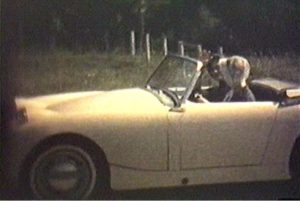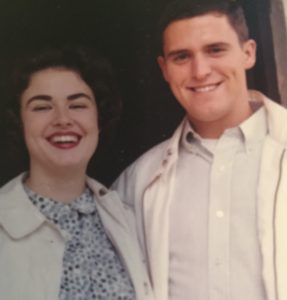“An army major with close ties to the FBI admits that he planned to kidnap a Mafia member, force him to talk about illegal drug deals, ransom him for $1 million, and turn over the intelligence and money to the FBI.”
That was the lede of one of the most bizarre stories I came across during my 42 years as a newspaperman. And it’s gets better.

The major was a war hero. He had served two tours of duty in Vietnam, as a first lieutenant in the Special Forces and as a captain in command of a rifle company; he had been wounded in combat and awarded three Purple Hearts; and he had won a Silver Star, the nation’s third highest personal decoration for valor.
After that he had worked undercover for the FBI — and was wounded a fourth time.
* * *
The major had wanted to make the Army his career but, in spite of his war record, he was mustered out of the service as the Vietnam war wound down and the Army didn’t need as large a force — and didn’t need him any more.
Eight years later he volunteered to serve our country again, working for the FBI, secretly recording mobsters who frequented a restaurant up North where he worked.
And then, one morning, he got shot. Actually, he shot himself. He was carrying a gun in a briefcase and when he accidentally dropped it and the gun went off. It could have happened to anybody.
The problem, besides the fact that he had been shot, was that he was wearing a wire. The FBI, fearing that the Mafia would would hear about the wire from another waiter or a paramedic, maybe, offered to put him in the government’s witness protection program. But he said, No, use your influence to get me back in the Army. And the FBI did.
Back in the Army, the major continued helping federal agents from up North, meeting with them at least twice, answering their questions about organized crime figures. At the same time he began recruiting five other Special Forces solders, including two from his unit, to help him carry out his kidnapping, torture, ransom idea.
The whole thing came to a head when one of those solders called an FBI office in North Carolina –those agents didn’t know the major secretly worked for an FBI office up North– and gave them a heads up. They wired up that solder and pretty soon they knew all about the major’s plan.
When the two FBI offices began talking to each other, the investigation was suddenly dropped. Agents did, however, tell the major in no uncertain terms to knock it off.
“It was a big misunderstanding,” he told me — the FBI had not wanted him to kidnap and torture anyone. “I believe I read something into what they were saying that wasn’t there.”
While his plan might have been “misguided,” the major admitted, he said it was conceived out of a sense of duty and patriotism. As an Army officer he had taken an oath to defend the Constitution against all enemies, foreign and domestic – and the Mafia is a domestic enemy of the United States, he said.
* * *
I tried to interview men he had recruited for the kidnapping mission. I found one of them in Alabama and got him on the phone but he wouldn’t talk. He said he’d write me a letter and explain why.
Talking or not talking to me was entirely his call — the “why” made no difference to me. But, a few days later, his letter arrived. He said he was concerned that if the Mafia learned that he had agreed to come after one of theirs – they might come after him.
“If you put my name in the paper,” he said, “I will have to take my family and go into hiding. And you will have to take your family and go into hiding.”
He signed the letter with his name – and a bloody fingerprint.
Postscript: The major was kicked out of the Army but was not charged with a crime. He asked me, “If the U.S. Attorney did not indict me and the Army didn’t court martial me, what, exactly, did I do wrong?”
Coming Monday: Jimmy Hoffa’s Grave

